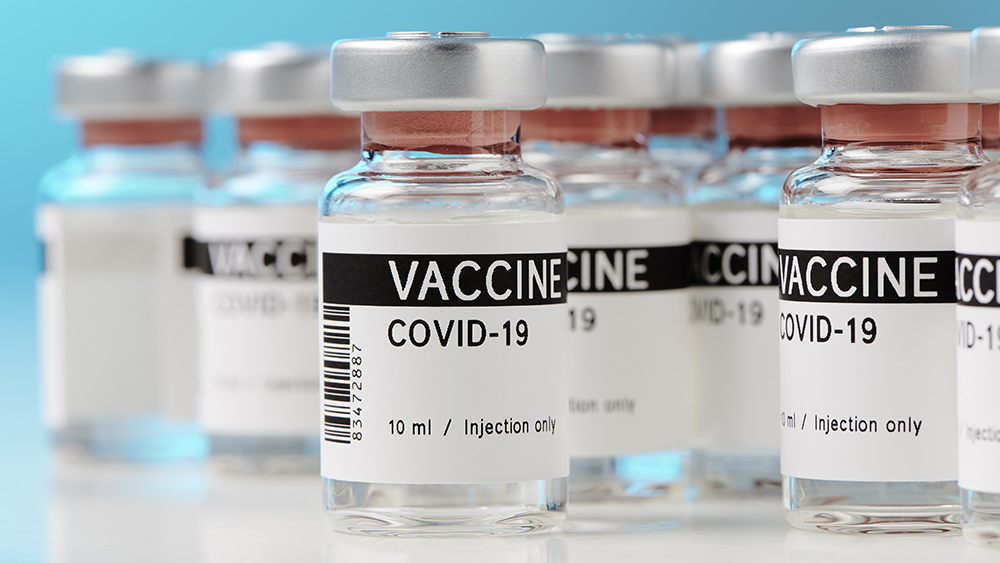Mushrooms boost brain health: Eat them twice a week to prevent dementia
08/10/2019 / By Rex Carter

With ever-increasing numbers of people dealing with Alzheimer’s and dementia, people are looking for ways to prevent themselves and their loved ones from having to face these horrific diseases. While traditional, medical treatments have little to offer, there are some natural treatments that have the potential to help protect against cognitive impairment. For instance, consuming more than 300 grams (g) of cooked mushrooms a week can reduce the risk of mild cognitive impairment (MCI), according to a study by researchers from the National University of Singapore (NUS).
The researchers defined 300 g as two portions, about three-quarters of a cup each. This serving size is only a guideline, however, as the researchers pointed out that eating smaller portions may still offer benefits in terms of fighting MCI.
According to Assistant Professor Lei Feng, the lead author of the study: “This correlation is surprising and encouraging. It seems that a commonly available single ingredient could have a dramatic effect on cognitive decline.”
Identifying the effects of MCI on older adults
Mild cognitive impairment is defined as the stage between normal age-related cognitive decline and dementia. MCI involves memory loss or forgetfulness and a deficit in attention, language, and spatial awareness. However, because MCI’s effects are subtle, older adults often attribute them to aging.
“People with MCI are still able to carry out their normal daily activities. So, what we had to determine in this study is whether these seniors had poorer performances on standard neuropsychologist tests than other people of the same age and education background,” explained Feng.
To get an accurate diagnosis, the team adopted a version of an IQ test called the Wechsler Adult Intelligence Scale. They then interviewed and tested the participants extensively.
“The interview takes into account demographic information, medical history, psychological factors, and dietary habits. A nurse will measure blood pressure, weight, height, handgrip, and walking speed. They will also do a simple screen test on cognition, depression, anxiety,” added Feng.
The researchers collected data from over 600 older adults in Singapore. They found that the participants who ate more than two portions of mushrooms weekly were 50 percent less likely to suffer from MCI. MCI afflicts about one in four people aged 65 and up worldwide.
Ergothioneine in mushrooms can preserve cognitive function
In their study, Feng and colleagues cited six mushrooms commonly eaten in Singapore: shiitake, golden, oyster, white button, and dried and canned mushrooms. These mushrooms contain an antioxidant and anti-inflammatory amino acid called ergothioneine (ET), which the body can’t produce on its own.
According to a 2016 study, people with MCI have lower levels of ergothioneine than healthy individuals of the same age. This led researchers to surmise that ET deficiency plays a role in neurodegenerative disorders. They believe that increasing ET intake can help preserve cognitive function.
Moreover, mushrooms contain other bioactive compounds that may reduce the risk of cognitive decline. These substances have the ability to inhibit the production of beta-amyloid and tau proteins, which are associated with Alzheimer’s disease. Other components of mushrooms can also promote the growth of neurons. (Related: The CURE for Alzheimer’s Disease can be found in our synapses.)
In the future, the team from Singapore hopes to pinpoint dietary factors that can lessen the risk of age-related cognitive decline. Their next goal is to determine if plant-based compounds like L-theanine and the catechins in tea leaves have merit in terms of improving cognitive health.
The Life Sciences Institute and the Mind-Science Centre at NUS, together with the Singapore Ministry of Health’s National Medical Research Council, supported the research. The results of the study were published in the Journal of Alzheimer’s Disease.
Sources include:
Submit a correction >>
Tagged Under:
aging, alternative medicine, Alzheimer's disease, anti-aging, anti-aging science, anti-inflammatory, antioxidant, brain health, clean food, cognitive decline, cognitive function, cognitive health, dementia, disease treatments, ergothioneine, food cures, food is medicine, food science, functional food, grocery cures, longevity, MCI, memory loss, mild cognitive impairment, mind body science, Mushrooms, natural cures, natural medicine, neurodegenerative disorders, phytonutrients, prevention, research
This article may contain statements that reflect the opinion of the author
RECENT NEWS & ARTICLES
COPYRIGHT © 2017 RESEARCH NEWS





















